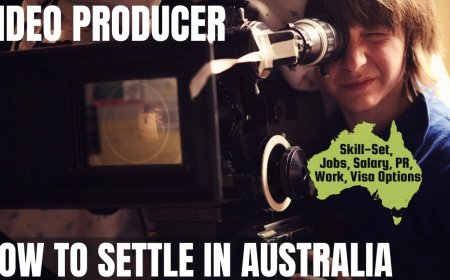Wine Maker Career and Immigration options for Australia
Wine Maker Plans, supervises and coordinates the production of wine or spirits from selected varieties of grapes.
Profile Title: Wine Maker Career and Immigration options for Australia
Alternative Title:Oenologist
ANZSCO Code: 234213 | Unit Code: 2342
Skill Level: Level 1 | Work Experience: 1 Years
Assessing Bodies: Vocational Education and Training Assessment Services (VETASSESS)
Skill Occupation List (SOL): ROL
Specialization: Not Defined
Profile Description: Plans, supervises and coordinates the production of wine or spirits from selected varieties of grapes.
Job Duties:
- conducting experiments and tests to identify the chemical composition and reactive properties of natural substances and processed materials
- analysing and conducting research to develop theories, techniques and processes, and testing the reliability of outcomes under different conditions
- developing practical applications of experimental and research findings
- testing food products for flavour, colour, taste, texture and nutritional content
- advising on preserving, processing, packaging, storing and delivering foods
- developing quality control procedures and safety standards for the manufacture of food products
- examining grape samples to assess ripeness, sugar and acid content, and determining suitability for processing
- coordinating winemaking processes, directing workers in testing and crushing grapes, fermenting juices, and fortifying, clarifying, maturing and finishing wines
- blending wines according to formulae and knowledge of winemaking techniques
Skill Level Description: In Australia and New Zealand: Most occupations in this unit group have a level of skill commensurate with a Bachelor Degree or higher qualification. In some instances relevant experience and/or on-the-job training may be required in addition to the formal qualification. In the case of Wine Makers, at least five years of experience may substitute for the formal qualification (ANZSCO Skill Level 1).
Available Visa Options (As on February 2024):
- 407 - Training visa (subclass 407)
- 489 - Skilled Regional (Provisional) visa (subclass 489) - State or Territory nominated
- 482 - Temporary Skill Shortage (subclass 482) – Medium Term Stream
- report caveats apply
- 187 - Regional Sponsor Migration Scheme (subclass 187)
- 494 - Skilled Employer Sponsored Regional (provisional) (subclass 494) - Employer sponsored stream
- 491 - Skilled Work Regional (provisional) visa (subclass 491) State or Territory nominated
Registration or Licensing: Not Required
Industries: Chemists, and Food and Wine Scientists are mainly employed in: Manufacturing; Retail Trade; and Professional, Scientific and Technical Services
Education Profile: The most common level of educational attainment for Chemists, and Food and Wine Scientists is Bachelor degree (51.9 per cent).
Job Opening: Over the five years to November 2019, the number of job openings for Chemists, and Food and Wine Scientists is expected to be below average (between 5,001 and 10,000). Job openings count both employment growth and turnover (defined as workers leaving their occupation for other employment or leaving the workforce).
Age Group: The main age group is 25-34 years (27.1 per cent) and the median age is 41 years (compared to 40 years for all occupations).
Gender: The female share of Chemists, and Food and Wine Scientists is 27.9 per cent and 86.0 per cent of Chemists, and Food and Wine Scientists work full time. Average weekly hours for full time workers are 38.3 (compared to 40.2 for all occupations).
Earning: There are no earnings data available for this occupation.
Employment: Employment for this occupation fell in the past five years and in the long-term (ten years). Looking forward, employment for Chemists, and Food and Wine Scientists to November 2020 is expected to decline.
What's Your Reaction?
 Like
0
Like
0
 Dislike
0
Dislike
0
 Love
0
Love
0
 Funny
0
Funny
0
 Angry
0
Angry
0
 Sad
0
Sad
0
 Wow
0
Wow
0









































































































